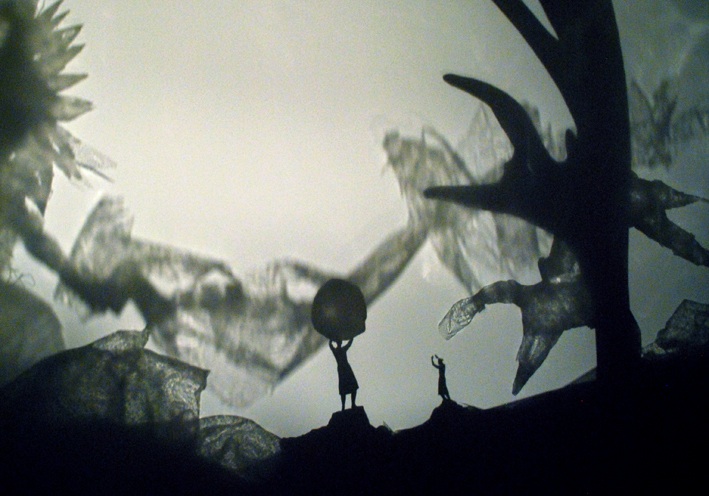“It’s here somewhere,” she says, scanning the pages of her dream journal. Then, turning the big, black, hardbound book upside down, the dreamer flips through its pages from the opposite side, her play-by-play trailing off as she tilts her head sideways to read something scrawled in the margin. “Ha!” She snaps the book suddenly shut and sets it down on the high, curved arm of the oversized chair as she bends forward to fish through a yawning backpack, slumped over on the floor next to her feet. “I know I brought it,” she mutters, pulling out another smaller journal, this one bound in soft, chestnut-colored leather.
As she tries to locate the elusive dream, it’s entirely evident, even to the dreamer, how much she desires to tend this particular dream. But what may not be so evident (at least to her) is how much this dream, in all its particularity, likewise desires to be tended by her. When it comes to the dreamtime, at least, desire is never one-sided.
Why? What does the dreamtime want from us? Well, our attention, for one thing. But it’s not merely attention for attention’s sake. Rather, the dreamtime seems genuinely interested in developing our capacities for noticing, and for holding our gaze until eventually we’re able to see through what’s being presented.
This is precisely why my book is entitled Icons of a Dreaming Heart, for not only does the practice of illuminating sacred images with lamps or candles pre-date Christianity, it may well have originated out of a sincere desire to emulate the inner illuminations of dreaming. Thus, if we can begin to see through our fascination with dreams to the dreamtime’s fascination with us, we might perhaps break the enchantment that dreams seem to have ‘over’ us and enter instead into a shared imagination with the presences of the dreamtime.
Meanwhile, back in my studio, as the written version of the dream remains stubbornly elusive to the dreamer, I suggest we call off the search party and begin working with those remnants of the dream she can recall. She immediately jumps to her feet as if she’s ‘it’ in a new game of Hide and Seek.
Ready or not, you must be caught!
“There are three parts all having to do with a project,” she begins confidently, as if somehow convinced she’ll soon find the dream crouched quietly in its dark hiding spot. “And there’s this dream man. I can’t really tell you anything about him except that we’re supposed to be working on this project together, and . . . oh, it was all quite clear while dreaming, but . . .” she freezes, as though she may have caught a glimpse of something moving sideways in the dark. When nothing seems to materialize, the dreamer continues, “There are a couple of others working with us and, though we’ve all been charged with working collaboratively, it’s this fellow and I who’ve some pretty strong, opposing ideas about what we need to do. That’s part one,” she pauses.
“In the second part,” she continues, “I’ve decided not to assert my will so strongly, but then the guy immediately takes over so completely that there’s no room for anything but what he wants. And it’s quite clear then that this is not at all the point of our intended collaboration.” She looks at me, “That’s part two.”
“And now I was hoping more of the third part would come back,” she frowns, clearly disappointed. “It has to do with the project . . . with what the project actually is,” she flaps her arm through the air as though it’s the third part of the dream flying off, “but it’s gone now,” she sighs. “It all ends with the feeling of being entirely unresolved.”
It’s this feeling that the dreamer wakes up with, the sense that something forgotten remains unresolved, that she finds so unsettling, for she imagines (quite falsely) that if only she could remember what the project entailed she’d no doubt find a way to fix things and restore equilibrium. But it’s her frustration with not being able to recall the content of the project that actually reveals the heightened importance that she (along with the rest of us) mistakenly places on dream contents. Quite paradoxically, then, what the dream is trying to help the dreamer remember IS forgetting.
The forgotten project for all of us, it seems, has therefore more to do with working collaboratively with whatever remains, with all that is present, while learning to let go of our literal imaginations. In order to do this we’re required to learn how to forgo the current cultural habit of working with dreams forensically, as though they’re separate and discreet phenomena that, once placed on the cold, metal examining table, under the careful glare of our focused, scientific stare, will eventually yield up the hidden meaning of their contents. The forensic approach, however, much like the practice of our psychological introspection, mostly manages to lead us back to what we already know (or what we think we know).
The practice of dream-centered living, on the other hand, invites us to tend those dreams we imagine as separate and discreet from within the dream of our lives, from within whatever is currently unfolding. In other words, we want to tend dreams in living ways from within the context of the living dream of our lives. Though forgetting was not present in the dream as it originally presented itself to the dreamer, it now becomes a living and integral aspect of the dream within the dream, as it’s unfolding.
Forgetting in this particular dream, therefore, perfectly highlights the difference between dream content and dream activity, because, as we have seen, it is not part of the dream’s original content. Indeed, originally the project and all that it entailed was perfectly clear to the dreamer. When the dreamer awakes feeling unsettled by all that remains unresolved, however, forgetting becomes a major player in the dream’s activity. And it’s always the dream’s activity, that as dream-centered living practitioners we want to track. Naturally, as this writing endeavors to make clear, it takes practice.




Thank you for this wonderfully helpful writing, one that re-locates the significance of dreaming away from any form of psychology and where dream, and dream tending, become a “Way”, really a spiritual way, that is it is not about content, and not about getting anywhere, not about ‘development’, not about ‘self-discovery’, but is for the sake of the dream that waits for us, for our attentiveness to full live in the light. All this comes through with this writing, not as concept, but as living activity, happening, now. In presencing in this way, we undergo creation as soul-beings, rather than living the unexamined life.
Thank you, Robert. Yes, it does seem to be a spiritual way, and, as you say, ‘for the sake of the dream that waits for us’ . . . .
So r you ssing that it is not so much important to try to recover Un remembered dream but notice where the attention the feelings the dream time is making us aware of t like the echoes of beings all being one I was talking about if I was need to remember contents I would have is that it. Laurie
Thanks for your comment, Laurie. To answer your question, yes, in this particular case. But it’s not something I recommend in a blanket sort of way, like “oh, just forget about dreams. They’ll get your attention well enough when they want it,” even though, of course, this is true–the dreamtime WILL get our attention when it wants it, often in no uncertain terms, as many of us know only too well! BUT there is more, for it seems that we are also being asked to turn toward the dreamtime with what we might bring to it, that is, our attention and presence and all that we can remember. And sometimes, as in the case of this particular dream, when the dreamer wholeheartedly turns her attention toward the dream, what we discover is that forgetting is one of the ways that the dreamtime endeavors loosening the literal grip that contents have on us. It’s not that contents aren’t important–they are. But they’re important mainly because without them the living activity of the dreamtime would not be possible. The contents of the dream are what carry the dreamtime’s activity.
Ty for clarification I get it but if we r turning our attention and we get feelings but the workings remain elusive then focus on what is being revealed right
Exactly. Receptivity means allowing a kind of soft focus on what’s being revealed. If we focus too intently, too willfully, as through we’re trying to get something from the dream, it moves out of receptivity and the relational conditions necessary for revelation.
Nice
Remembering to forget and working with what remains … Gorgeous. Thank you, Renee (and dreamer) for another beautifully imagined dreaming possibility.
Thanks, Jacque.